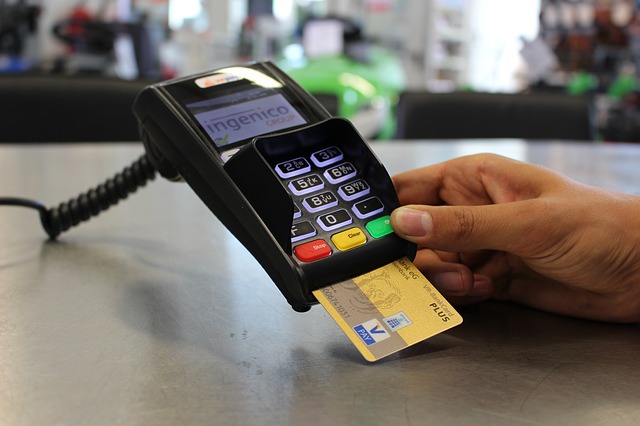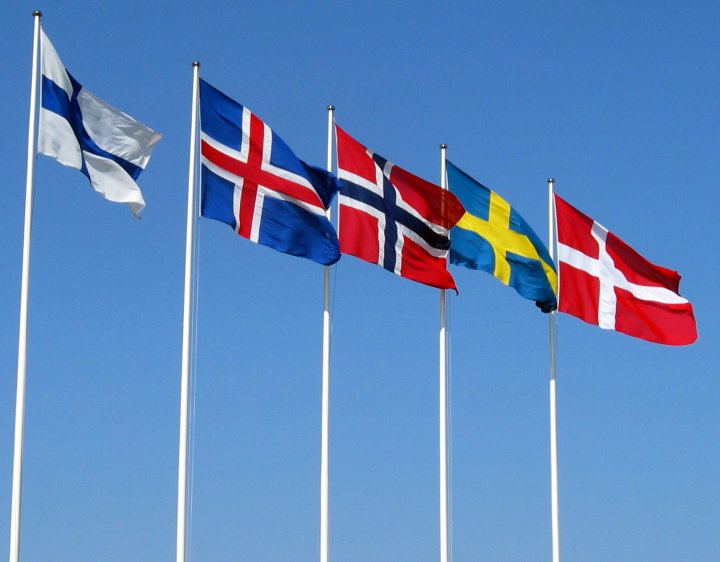Economy
Are commercial banks behind forced march towards electronic payments?

A campaign to ban hundred-dollar bills is going on in the US. It involves prominent economists, including former Head of the Federal Reserve, Lawrence Summers.
In April, Deutsche Bank held International Cash Conference entitled “War on cash: Is there a future for cash?”.
Visa payment system quite expectedly carried out an advertising campaign under the slogan “Cashfree and Proud”.
Dozens heads of states and private banks have already said that cash is ineffective, is used to finance criminal activity and tax evasion, and, finally, do not allow governments to manipulate macroeconomic indicators.
In December 2016, the Australian Minister of Finance proposed to prohibit the circulation of banknotes of 100 Australian dollars.
It is now forbidden to accept the largest denomination – 100 Bolivars – for payment in Venezuela.
Yet, this is only the beginning of the war, led by financial regulators, bankers and electronic payment system operators around the world. Their real goal is elimination of cash.
“The electronic payment industry in all of its forms is trying to find ways to displace cash, and that will continue,” said George Peabody, Senior Director at Glenbrook Partners, a payments research firm in Menlo Park, USA.
For financial organizations and governments, the idea of giving up cash is practically devoid of shortcomings. Cash as such has certain advantages and disadvantages that stem directly from its nature. Being a completely anonymous payment method, cash remains physical objects, movement of which requires energy and money. Denominations and coins are easy to destroy, mutilate or simply lose. For this reason, the regulation of real money is expensive and complicated. No regulator in the world will tell you the exact amount of money in circulation – only, perhaps, how many banknotes have been issued.
Also, physical money can act as a means of storing valuables or as a treasure, when it comes to investment coins made of precious metals. Physical money can be faked. Finally, do not forget about direct expenses for printing, introduction and removal from circulation, denomination and other unavoidable operations. It is also impossible to make remote payments with physical money.
Unfortunately, all good ideas of economists encounter resistance of people who have no idea how the economy works. For example, Denmark has supported the negative rate, advocated by Harvard University professor Kenneth Rogoff. Four years of the experiment caused private sector investment to fall by 2 percentage points (from 18.1% to 16.1% of GDP), and the savings rate increased by almost five p.p. (from 21.3% to 25%) compared with the time when the rate was above zero. Citizens understood that they were losing money on deposits. At the same time, they were afraid to spend, because they began to lose confidence in the long-term stability of the financial system and safety of their savings. If the state commences strange experiments with other people’s money, it is better to tighten the belt and wait.
Apparently, people have three options in the current circumstances: to leave money in the bank and lose little by little on negative rates; to spend or to invest their savings; to close the account and put cash in the pocket. Not surprisingly, many prefer the third option, and this is a fact confirmed statistically. Thomas Savare, CEO of French security printer Oberthur Fiduciaire, says: “there are a lot of preconceived ideas about that. I can’t predict whether or not banknotes will have disappeared in two hundred years. But while I can’t see future, the volume of printed banknotes is growing faster than GDPs. That might come as a shock considering the rise in electronic payments, but the reality is that cash is still king and growing in developed economies… and even faster in emerging economies.”
Actually, one of the reasons why people are hiding money is a general distrust in the financial system. The prohibition of paper bills obviously does not solve the core problem: people will not become confident in financial institutions just because they will be forced to take all their money to a bank. In addition, in the state of mass surveillance, paper money has a completely property – it is anonymous.
Yet, citizens of the world are losing their freedom, argues investor Jim Rogers, who in the 1970s together with George Soros founded Quantum Fund. He says: “If you want to go and buy a cup of coffee they know how many you drink, where you buy them etc. If they can all put it into electronic formats and they will the world is all going electronic”.
Privacy activists also believe that actions of governments, not citizens, must be more transparent. Professor of the University of Freiburg and member of a group of economic advisers under the government of Germany Lars Feld does not agree with the need to cancel cash either. In an interview with the Frankfurter Allgemeine Zeitung, he called cash “coined freedom” and noted that physical money allows citizens to avoid excessive state control. And off-the-radar labor activity can be contrary to the law, but this is often “the last opportunity to make a living” for certain groups of people, Feld noted.
Oberthur Fiduciaire’s CEO argues: “People should be able to choose how they want to pay and we see across the world that the usage of cash isn’t decreasing even in countries with more and more electronic payment solutions, because they aren’t completely trusted”. “The use of cash remains an essential liberty that everyone should be able to have”, they say at Oberthur Fiduciaire.
Also, few know that if a citizen makes a deposit to a commercial bank account, he loses ownership of his money and in return acquires the obligation to claim the same amount back. Unfortunately, only lawyers understand the fundamental difference between the right of property and the right of obligation.
Precisely this transformation of the first type of right into the second exposes people to a certain risk. The reason is simple: the bank can go bankrupt or get sanctioned.
Here, for example, an ugly story from America – Operation Choke Point. There, the Ministry of Justice (for the noble purposes of protecting the population from predatory lending) asked banks to voluntarily block “suspicious” financial transactions. Apart from the Ponzi schemes, the operation covered sale of weapons, pornography and escort services, as well as law-abiding and harmless telemarketing, lotteries and the sale of fireworks. As The Atlantic explains in its material, banks and card systems like Visa and MasterCard turned out to be the “choke points”, pushing on which the state easily blocked not only criminals, but also completely legitimate business.
The problems, which financial and government institutions hope to solve by eliminating cash, require an integrated approach to democracy, political institutions and civil society. We cannot deny the existence of shortcomings in the system, but we also need to understand that the ban on cash should not restrict freedoms and rights of law-abiding citizens.
Ref.
http://www.zerohedge.com/news/2016-12-14/war-cash-escalates-australia-proposes-ban-100-bill-no-cash-within-10-years
http://www.bankrate.com/banking/checking/will-cash-become-extinct/
Kenneth Rogoff: Negative interest rates are an emotional topic, too
World’s Longest Negative Rate Experiment Shows Perversions Ahead
http://www.zerohedge.com/news/2017-02-11/jim-rogers-were-about-have-worst-economic-problems-lifetime-lot-people-will-disappea
http://www.faz.net/aktuell/finanzen/digital-bezahlen/bargeld-wirtschaftsweiser-gegen-abschaffung-13597099.html
https://www.theatlantic.com/technology/archive/2016/04/cashless-society/477411/
Economy
Protecting Your Business From Rising Fuel Costs
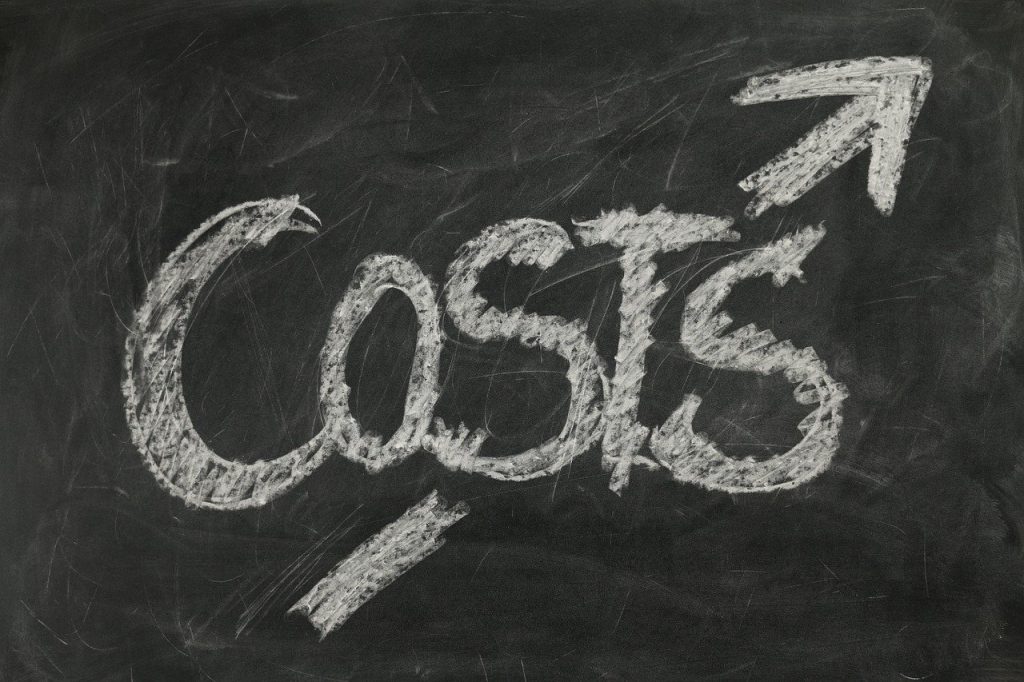
The cost of fuel is soaring globally, due to various factors, including the coronavirus pandemic and the ongoing conflict in Ukraine.
Businesses everywhere are feeling the burden that comes with increased energy costs. However, there are a number of things that experts have determined companies can do to fight back and protect their businesses from rising fuel costs.
Implement green measures
Dusistainbility has been a big trend in global business in recent years. Companies that have not yet embraced measures such as the paperless office and the use of solar power, many find that doing so now could help to offset some of the extra costs arising due to higher gas, oil, and electricity prices.
A four-day week
The benefits of a four-day week for employers and their employees have long been debated, but there is a lot of evidence to suggest that companies can be run just as efficiently in four days as they can in five. This could give companies struggling with the cost of heating, and lighting their offices, or running their machinery the opportunity they need to protect their business from fuel costs without losing money.
Should a factory, for example, close for one extra day per week, they would save 20 percent of its operating costs, and studies have shown that employees who work four days a week are around 20 percent more productive, which means they could save a great deal on the ongoing cost of fuel, without ruining their productivity or losing revenue. Many experts believe this to be a win-win situation.
Special offers
Of course, when the price of fuel rises, in certain industries, customers may be affected by those costs, and therefore less likely to make the same level of purchases they once did. Companies who find themselves in this position need to do whatever they can to encourage customers to buy.
For example, Volvo Penta, which sell luxury yacht and marine engines, among other applications, may find that due to the cost of fueling a vessel, fewer people are going out o their boats, causing sales to drop. By making special offers or putting together attractive packages, they can encourage more purchases to be made. If the product is good, and the price is right, it is easier to weather this particular storm.
Downsizing
Now that remote working is easier than ever, downsizing office space is set to be another important way that companies around the world can protect themselves from the rising cost of fuel. The fewer employees who need to be in the office or onsite, the smaller the office space can be, and the fewer resources will be required to keep it running smoothly, so expect to see more homeworking going forward.
The cost of fuel may be set to rise even further in the Autumn, and no one knows exactly what will happen beyond that, but there are a number of things businesses can do in mitigation, so it is almost certainly not time to panic yet.
Economy
Joao Vale e Azevedo: pessimistic prospects could be tackled by collectivity
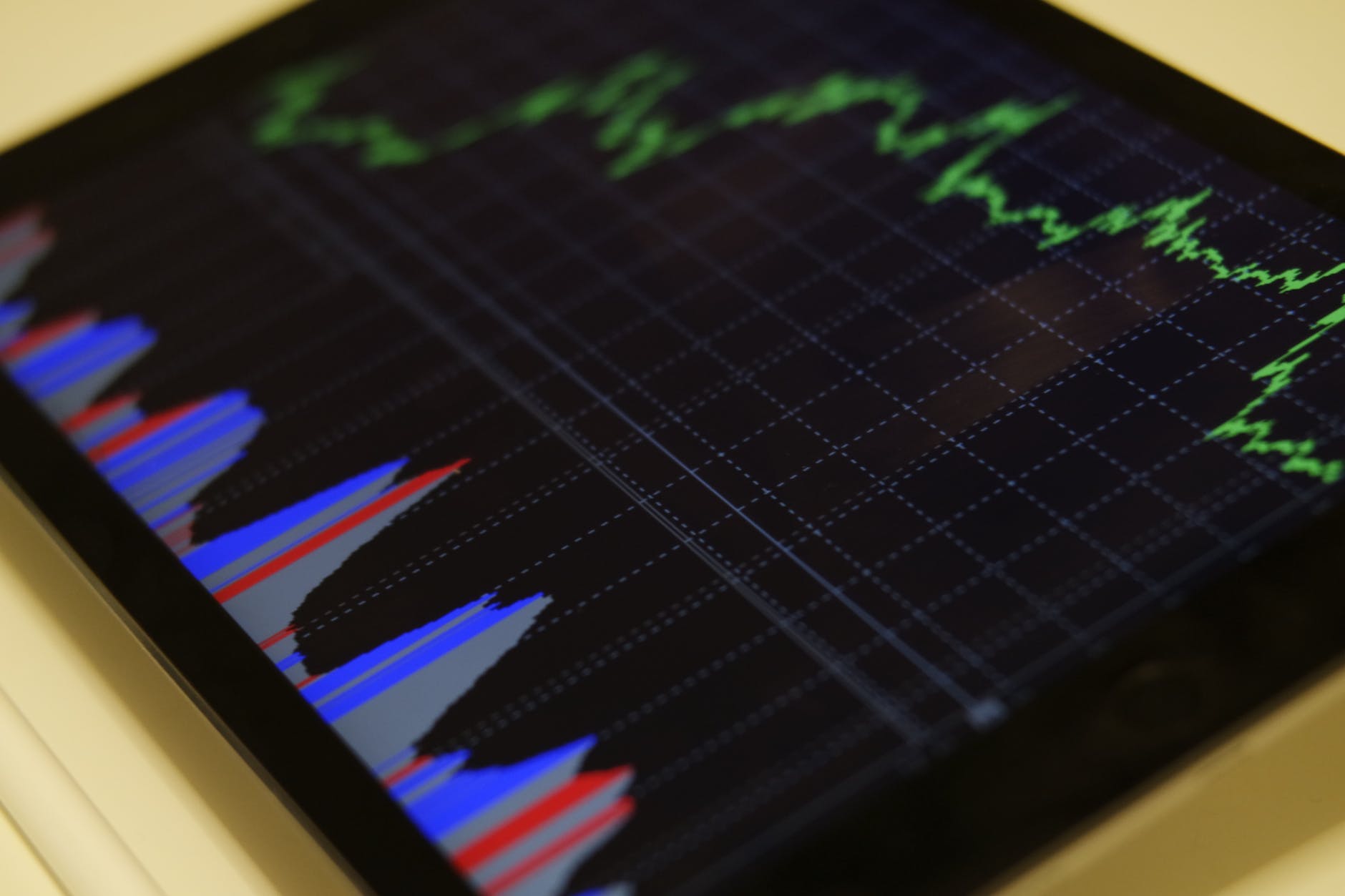
As we enter the new year, the effects of 2021 are now echoing in the economy in 2022. According to the World Bank’s latest Global Economic Prospects report, global growth is expected to decelerate markedly from 5.5 in 2021 to 4.1 in 2002 and 3.2 percent in 2023. This has been proposed both in the case of developing and major economies, such as the case of the United States.
In 2021, governments around the world have suggested that it was a year of rebirth. However, current numbers are not showing that and so not everyone is trusting on this bet. This is the case of Joao Vale e Azevedo, chairman of KUNST Global – an equity firm based in London, Geneva, Zurich and Luxembourg. For him, the forecast is still negative for 2022 as inflation keeps on running critically in the US and in many European countries. But unlike in the 1970s and 1980s, the solution won’t lie in governments printing money like they did in the past.
The chairman of KUNST Global also doesn’t think that the so-called commodity crisis is temporary as the news might say. In fact, Azevedo believes that there is more to it than the effects of the pandemic. While the Covid-19 crisis has ignited the growth of e-commerce, Azevedo claims that this intensification in demand for goods would happen anyway and the problem is actually in the distribution industry: “It is unable to meet this increased demand. There is no labor, no trucks, nor ships. The offer is no longer able to meet the market demand and this is not a contingency, it is a physiological fact.”
Finally, the third and possibly the most concerning problem is the price of energy. “This is really a worrying question, and not only for our distant future, as it has been up to now, but also for our present,” explains Azevedo. “We are witnessing it on a daily basis: electricity and gas bills have skyrocketed. Families and companies, which were already suffering from the pandemic, do not know how to cope with the increases.”
Although propositions like moving from coal to gas or from oil to electricity may point the way out, Azevedo thinks we are completely deprived of the infrastructure and funds necessary to manage this change. What is more, the chairman of KUNST Global argues that present politics lacks long-term vision, which means politicians are often too focused on electoral cycles instead of considering the future – thus mining any possibility of investments for change.
In addition to that, Azevedo has been keeping a close eye on the war in Ukraine. In his opinion, if Russia persists in carrying on the war, not only this country will be doomed to bankruptcy, but the whole West could face a domino effect. “Regardless of this, the war in Ukraine means greater market instability, rising energy prices that are already out of control, and a further increase in inflation, which could reach double the current levels,” he adds.
However, not all hope is lost. Hopefully, the war in Ukraine will find a rapid resolution, which is something that could catalyze even more this sense of collectivity that Joao Vale e Azevedo sees growing after two years of pandemic. “The fact that we have had fewer opportunities for interaction has meant that we are now more aware of the value of those interactions, and probably also of human life. We are a stronger community. The challenges that await us are very difficult, but together we are much better prepared to face them,” he concludes.
Economy
How People Around The World Are Investing Their Money
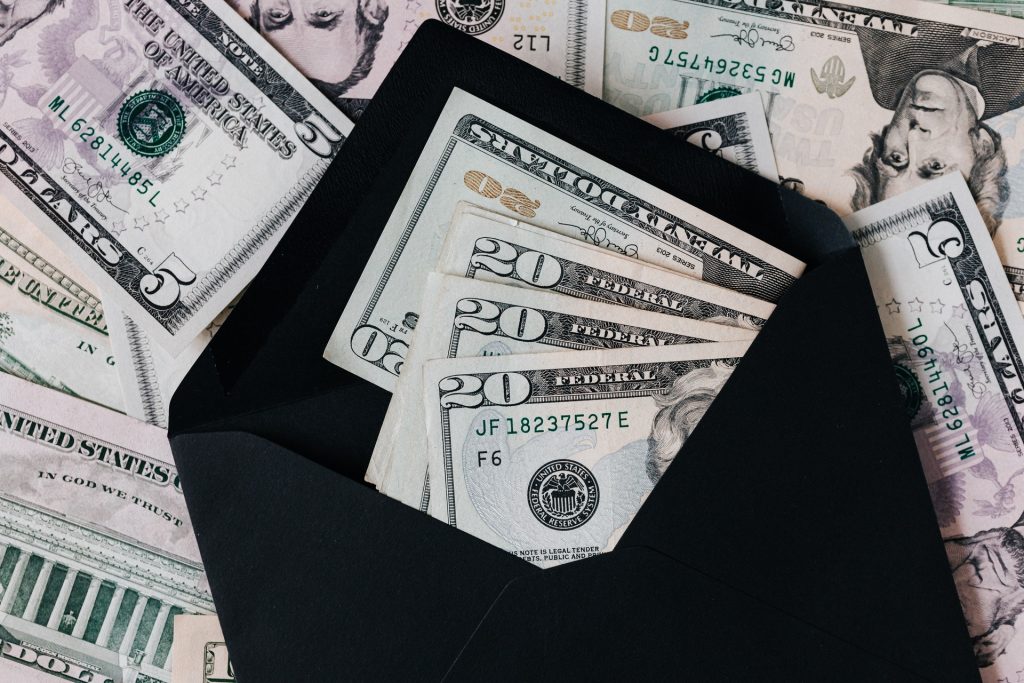
One thing that everyone should aim to do with their spare cash is to invest it – as wisely as possible, but at least in a way which is going to lead to potentially high returns. If done correctly and with a bit of good fortune, it is perfectly easy to improve one’s wealth to a considerable degree this way, and it is therefore well worth people considering this.
As it happens, there are a lot of investment options that people are making use of all over the world, with some that are especially popular right now. Let’s take a look in some detail at some of the major ways in which people are investing their money – and making some considerable gains, in many cases.
Stocks & Shares
Arguably one of the most popular forms of investment is stocks and shares – which can be incredibly lucrative if it is done in the right way, and with the right set of circumstances behind an investment. Indeed, stocks and shares remain the number one investment that people are engaging in every day throughout the world, and with good reason. Not only is it potentially something that can bring considerable returns, it is also relatively straightforward to get into and learn at least the basics of, making it a very simple and easy form of investment for most people.
It also doesn’t require a huge amount of money to get going – although having that is obviously not going to hurt one’s chances of success starting out! In fact, it’s doable to get going with stocks and shares with literally a few spare pennies – so it really is something that pretty much anyone can get into and make use of. It can also be a good way to diversify and widen out a portfolio that may include other forms of investment as well.
Savings Accounts
Although many people think of investment and savings as two different things, they are really just two sides of the same coin. You can think of saving as a form of investment, especially if it is done in the right manner and with the right approach. Of course, in order to find success with this, it is important to make sure that you are choosing the best savings account there is. That means one that has a high enough interest rate for it to be worth it, as well as having other functions that might be important to an individual – such as the ability to take money out whenever you need to, for instance.
With interest rates diving all over the world, this is quickly becoming one of the less popular forms of investment – but for now it is still worth considering, as it can be a good way to at least store your spare cash as necessary. If nothing else, you’ll probably find that you are able to find yourself in a much better financial position this way soon enough, even if that doesn’t happen as quickly as it might with certain other investments.
Cryptocurrencies
Although there is some controversy around cryptocurrencies, there is no doubt that it is one of the world’s most popular forms of investment right now. There is also no doubt that it’s possible to make a lot of money this way – as some of the world’s richest people have done so already. Even in a much lesser sense, however, it is perfectly possible for an individual with a regular amount of wealth to make money investing in cryptocurrencies. And generally, this is done in a few key ways.
First of all, you can simply buy some crypto and then hold on to it, hoping for its value to improve and selling it on once it has done so. Alternatively, you might want to consider trading crypto coins by buying one kind and then trading into another as you think it might be lucrative. This takes a bit more knowledge, patience and skill, but the returns can be significant. Either of these can work very well, however, and they are worth thinking about at the very least.
A related form of investment, in that it too relies upon blockchain technology, is NFTs. These pieces of art can be bought and traded as above, and some of them are creating huge amounts of money for people right now, so it might well be worth getting into.
Spread Betting
Another form of investment that a lot of people are getting into in the past few years is something known as spread betting. This is where you place bets on a variety of outcomes on a particular event, whether it’s a sport, a political event or whatever else it might be. With the right bet and the right outcome, this can be a really effective way to make some money, and it is best done with the attitude of it being an investment rather than a bet – as this helps in keeping things a little more sensible.
To make the right decisions, it is helpful to be patient and work out what kinds of results are likely to occur, and to find them at a good price. Searching for NHL picks and horse racing tips is a good place to start for that. However it might be done, with care and attention this can prove to be a decent way to invest some spare money, so it is definitely something to think about.
Bonds
If you are particularly keen for a very safe form of investment, it is well worth looking into bonds. Bonds are something like a savings account, but with an important difference that needs to be understood well in order to make good use of them. Essentially, you buy a bond and you will be paid back your initial investment, plus any interest that may have accrued along the way too. They are very low-risk and yet can bring you a lot of money over the long-term, so they are worth looking into for pretty much anyone looking to make a little money on the side.
Bear in mind that you won’t be able to access the money during the fixed rate period, so you should only invest whatever you don’t need to have immediate access to. However, they offer higher interest rates than your average savings account, so it can be worth it.
Precious Metals
Another form of investment that many people around the world are investing in right now is precious metals. In truth, these are always popular, and it’s not too hard to appreciate why. After all, precious metals will generally always retain their value even when everything else in the world is going through turmoil. That is especially true of gold, which still holds the standard that the global economy works by – with the exception of cryptocurrency.
As you can see, precious metals are almost certainly worth considering at the very least if you want to invest your money wisely. But make sure that you are only putting what you can afford to lose into this investment, like any other. Although it is not the highest-risk investment, it is not zero-risk either.
Those are just some of the most popular investments around the world that people are making good use of right now. Any of these could be lucrative and useful for you, so take a look at them in turn and see whether any of them are suitable for your needs and purposes. You might be surprised at how effective they can be.


